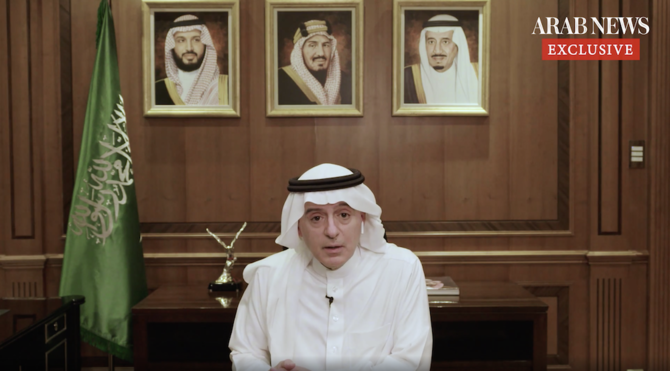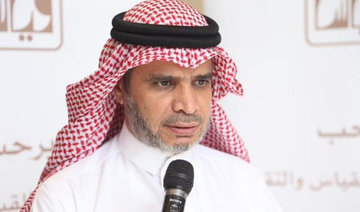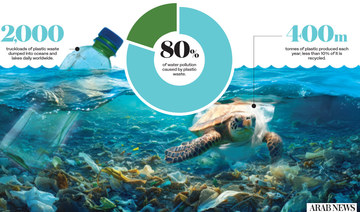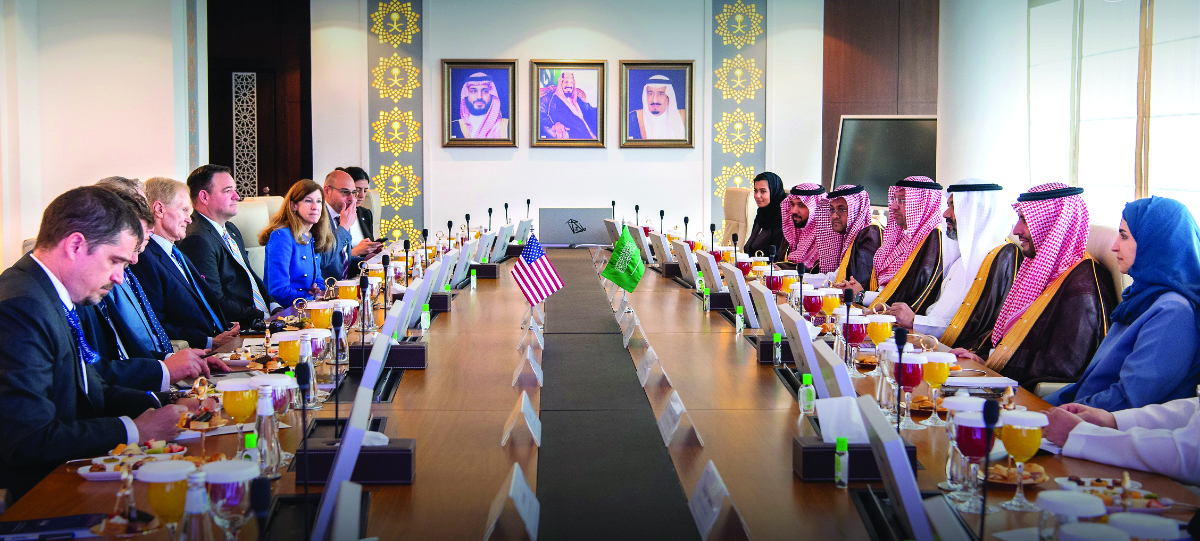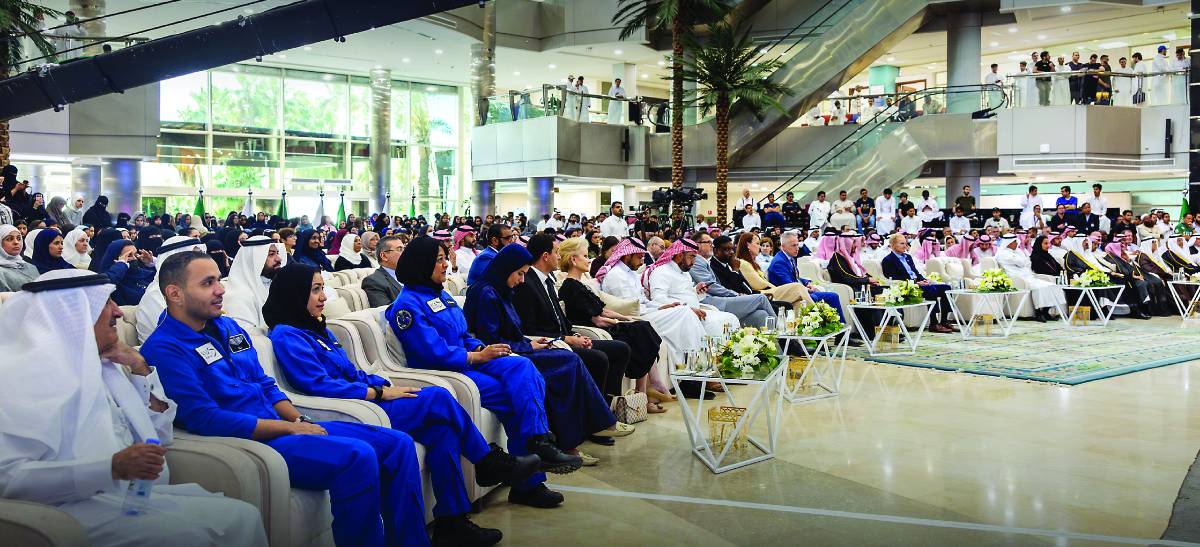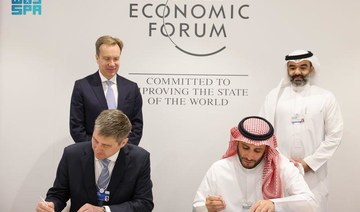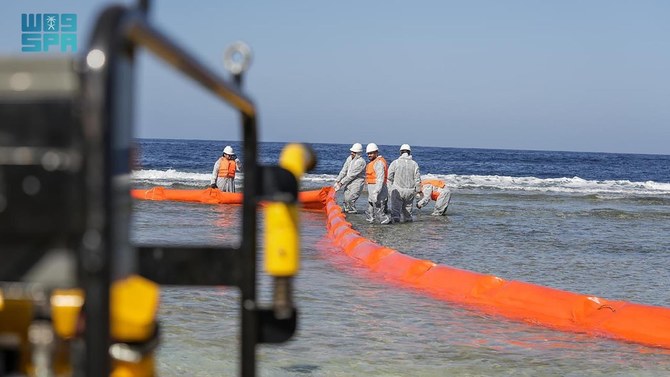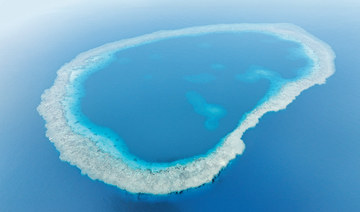RIYADH: Relations between the United States and Saudi Arabia will continue virtually unaltered under the Biden administration, the Kingdom’s minister of state for foreign affairs has said.
In an exclusive interview with Arab News, Adel Al-Jubeir stressed that the relationship between the two countries was “strong, dynamic and multifaceted.”
“The (Biden) administration has made it very, very clear that it is committed to the defense of Saudi Arabia, that it is committed to defending Saudi against external threats,” he said.
“So, I really don’t see much of a change between this administration and the previous administration in terms of their commitment to Saudi Arabia.”
He pointed out that relations between the two countries go back 80 years, and have been an important factor in maintaining global stability and security.
“Our relationship with the US is a strategic relationship. We have economic interests and financial interests. We work to fight extremism and terrorism,” Al-Jubeir said.
“We work to stabilize the region — whether it’s trying to bring peace between Israelis and Palestinians; whether it’s in Lebanon, Syria, Iraq, Iran, Afghanistan; trying to reduce tensions between India and Pakistan; whether it’s stabilizing Sudan; whether it’s working to end the war in Libya or to deal with the G5 (Sahel) countries, in their fight against Boko Haram.
“I believe they have made it clear that they want Iran to go back to the nuclear agreement and they want a nuclear agreement that is, to quote Secretary of State (Antony) Blinken, ‘stronger and longer.’ This is something that we've been advocating since the advent of this deal.
“We want the ‘sunset provision’ to be eliminated so that Iran cannot indefinitely enrich uranium. And we want to have a broader and deeper inspections mechanism to make sure that everything in Iran can be inspected, should there be a need.”
The recent attacks on Saudi Aramco facilities had links to Iran, Al-Jubeir told Arab News. “All of the missiles and drones that came into Saudi are Iranian manufactured or Iranian supplied,” he said. “Several of them, as we've said, came from the north; several came from the sea.”
In his view, the US decision to remove the Houthis from its international terrorism list, on the same day the Yemeni separatists attacked the civilian airport in Abha in Saudi Arabia, would make little difference to the international effort to provide aid to the country.
“We have made this very clear to our friends in Europe and to the US as well as to the United Nations special envoy,” Al-Jubeir said.
“The Taliban in Afghanistan are on the terrorism list; it doesn’t stop aid from coming to Afghanistan. In Syria you have Daesh on the terrorism list and that doesn’t stop aid from going to Syria. Hezbollah in Lebanon is on the terrorism list, that doesn’t stop aid from going to Lebanon. The Al-Shabab in Somalia are on the terror list and that doesn’t stop aid from going there. Boko Haram is on a terror list and that doesn’t stop aid from going into the G5 Sahel countries.”
The problem, Al-Jubeir insisted, lay with the Houthis. “They steal the aid; they sell it to finance their war machine. They induct young boys — 9, 10, 11 years of age — and put them on the battlefield, which is against international law and a severe violation of human rights,” he said.
“They indiscriminately launch ballistic missiles and drones against civilians, whether it’s in Saudi Arabia or in Yemen, where they also robbed the Central Bank. They rejected every attempt at achieving a peaceful settlement or cooperating with the UN special envoy.
“So, the message the position from our perspective with regards to the Houthis is very clear: They belong on a terrorism list and nobody should deal with them.”
The presence of the Iranian-backed separatists does not mean that peace is impossible in Yemen, Al-Jubeir said.
“We believe there is a political solution out there. We’re trying to achieve that political solution and have been trying to do so since the beginning of the commencement of hostilities several years ago,” he said.
“We have supported every effort and every initiative by the UN special envoys to arrive at a solution. We have worked to unify the Yemeni government, to unify the north with the Southern Transition Council. We have provided more than $17 billion in humanitarian assistance. We have made it very clear that the only solution in Yemen is a political solution based on the GCC initiative, the outcomes of the Yemeni National Dialogue and the UN Security Council Resolution 2216.”
Al-Jubeir defended Saudi Arabia’s record on human rights, which has come under attack in some parts of the world.
“Our view is that Saudi Arabia has made great strides in human rights. Fifty years ago, we had no schools for women; today 55 percent of college students are women. Seventy years ago, we had maybe 90 percent illiteracy rates; today everybody reads and writes and goes to school,” he said.
“Seventy or 80 years ago, infant mortality rates were very high. Maybe two out of three children died before the age of two. Today they’re at the same level as Europe and the United States. We have life expectancy rates that, within one generation, have virtually doubled. So, we take care of our people by providing them security, by providing them healthcare, by providing an education, by providing them opportunity.”
He added: “With regards to human rights as defined by the critics of Saudi Arabia, we have made great strides — in terms of liberating women, empowering youth, in terms of reforming our judicial system, in terms of opening up our society and making it possible for young people to be able to realize their hopes and their dreams and their ambitions. This is human rights. This is the important part.”
Despite the “normalization” of relations between some Arab countries and Israel, the position of the Kingdom remained unchanged, Al-Jubeir emphasized.
“We want a two-state solution based on the Arab Peace Initiative and the relevant United Nations resolutions where we have a Palestinian state and living side by side in peace and security. That remains our position,” he said.
“We believe that we were instrumental in moving the Arab world away from the ‘three nos’ — announced in Khartoum in 1967 that said ‘no to negotiations, no to recognition, and no to peace’ — by putting forth the late King Fahd’s eight-point plan at the Arab Summit in Fez in the early ’80s.
“This was adopted by the Arab world and basically called for a two-state solution. Then later at the (Arab League) summit in Beirut in 2002, we put forth the Arab Peace Initiative that called for what I mentioned: Two states, recognition, normalization of relationship, and everything that it entails in terms of good neighborly relations. This was adopted by the global community and that remains our position now.”
Referring to the states that have normalized ties with Israel, Al-Jubeir said: “Those are sovereign decisions that are really up to those countries. What we have said is if that leads to a change in Israel’s position with regards to annexation of Palestinian territory, or if it leads to a softening of Israel’s position with regards to negotiations, then there may be some benefit in it.
“But as far as the Kingdom is concerned, our position remains that normalization can only come if there’s an agreement on peace.”



